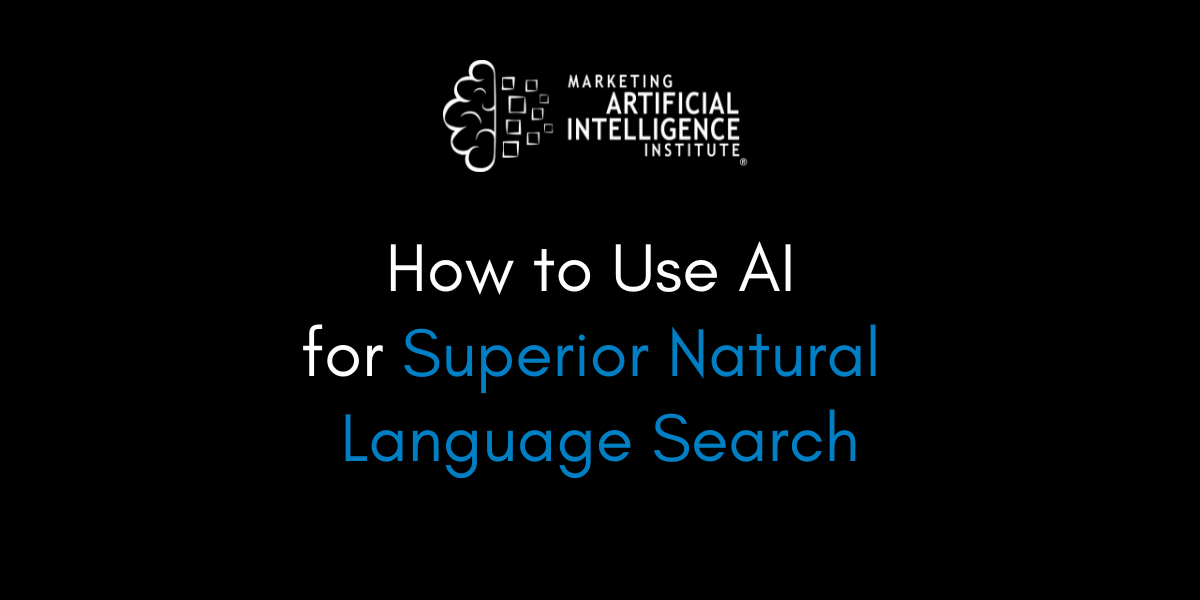DaaX is an AI-powered search solution that delivers superior results for natural language searches.
It does that by using a unique blend of large language models (LLMs) and knowledge graphs that understand the nuances of user language and context within searches.
The result? DaaX can improve search and recommendation results, enhance enterprise search application functionality, and much more thanks to AI.
We spoke with Damon Miller, Chief Growth Officer at DaaX, to learn more about this AI-powered marketing solution.
In a single sentence or statement, describe DaaX.
DaaX is technology delivering superior results for natural language searches by combining the power of knowledge graphs and large language models (LLMs).
How does DaaX use artificial intelligence in its products?
DaaX uses a combination of knowledge graphs and LLMs to power its search and recommendation engine.
What are the primary marketing use cases for your AI-powered solutions?
Primary use cases for DaaX include:
- Improving search and recommendation results for e-commerce platforms
- Enhancing product and enterprise application search functionality for both internal and external users
- Increasing sales and profitability through better search results
- Improving customer and employee satisfaction with superior search capabilities
What makes your AI-powered solution smarter than traditional approaches and products?
Our unique blend of LLMs and knowledge graphs sets us apart.
Traditional search engines often rely on keyword matching and basic algorithms, leading to less accurate and less personalized results. Our AI-driven approach understands the nuances of language and context, delivering superior search experiences that drive conversions and customer satisfaction.
We also offer 100% seamless plugin compatibility for open-source search solutions from Solr, Elasticsearch, and OpenSearch.
Are there any minimum requirements for marketers to get value out of your AI-powered technology? (e.g. data, list size, etc.)
The more data you have the more useful our solution. For enterprises, who have lots of data, this is not an issue. For ecommerce, around 200 SKUs seems about right.
Who are your ideal customers in terms of company size and industries?
Ecommerce, enterprises, small and medium enterprises (SMEs) and military and government.
What do you see as the limitations of AI as it exists today?
One of the biggest problems of AI is hallucinations.
LLMs are very powerful AI and have become one of the most important applications in use today. They are changing the way we work, create, and learn. However, the LLM hallucination problem is real.
According to some recent research, some LLMs can hallucinate up to 65% of the time. Therefore, companies and industries that have applications or use cases that require highly accurate results or are mission-critical are very hesitant or cannot use LLMs in their solution (think industries like: finance, healthcare, ecommerce, military, and government).
What do you see as the future potential of AI in marketing?
LLMs (and their natural language processing capabilities) and knowledge graphs have the potential to revolutionize search and recommendation systems, leading to improved financial performance and customer satisfaction for businesses.
Any other thoughts on AI in marketing, or advice for marketers who are just starting with AI?
Use and experiment with LLMs on your daily tasks. Embrace AI as a tool to augment your marketing efforts and career. Start by identifying specific pain points or areas where AI can deliver value, such as generating new ideas, or improving your communications—email, social media, website, blogs. Focus on experimentation and learning and be prepared to iterate and refine your AI strategies as you gather more data and insights.
For larger more impactful problems that affect your company or group, define a problem and do a POC. The key is to view AI as a collaborative partner that can empower you to achieve your marketing goals more effectively.
Mike Kaput
Mike Kaput is the Chief Content Officer at SmarterX and a leading voice on the application of AI in business. He is the co-author of Marketing Artificial Intelligence and co-host of The Artificial Intelligence Show podcast.



